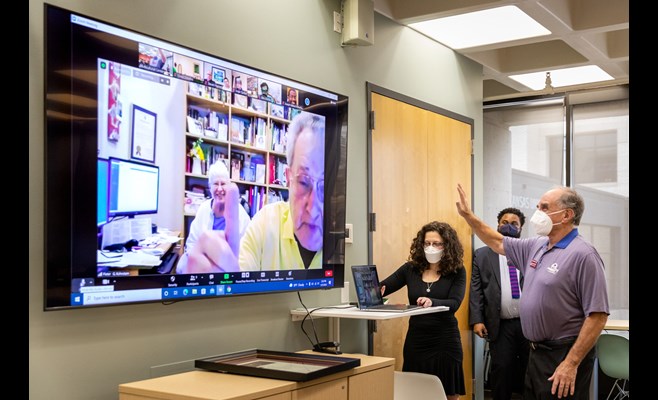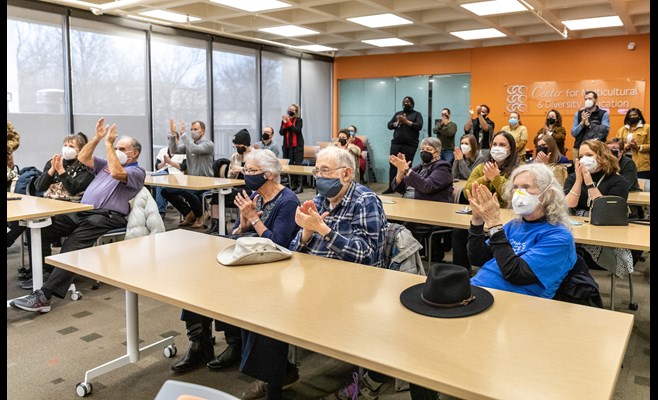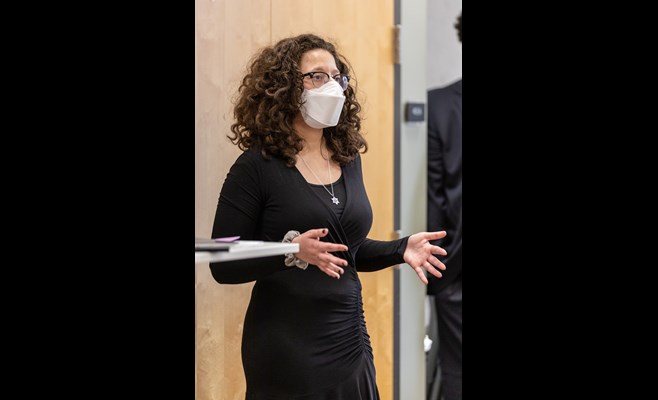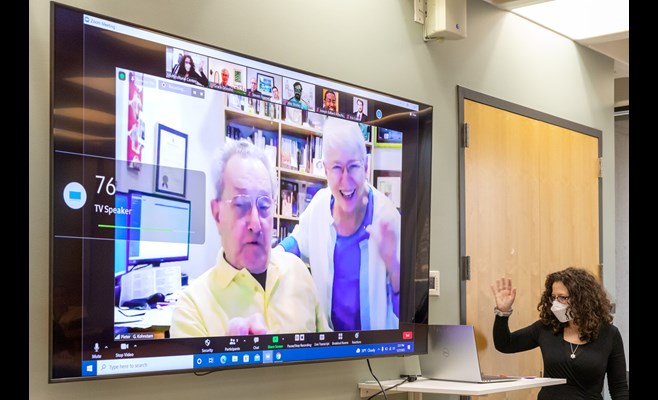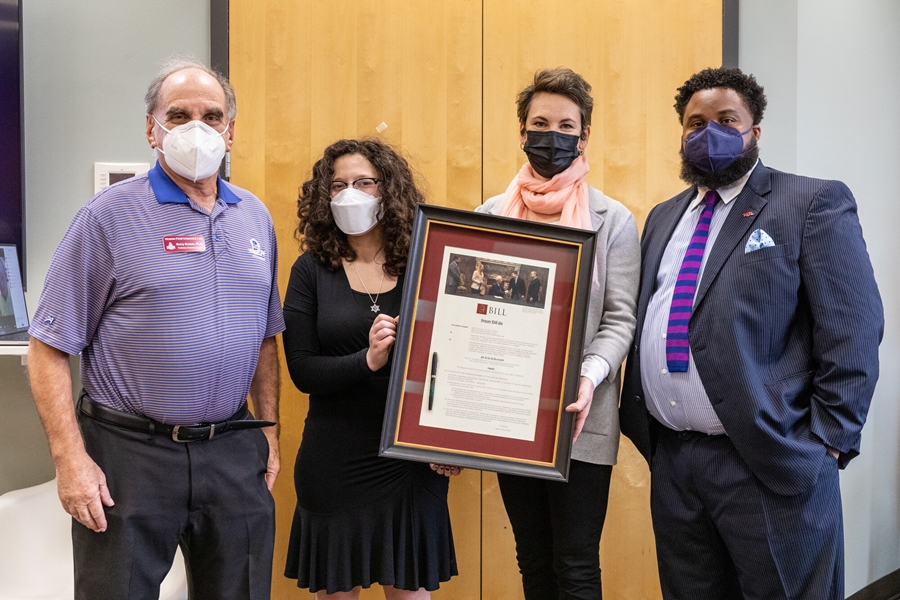The U of A held a small ceremony and provided accompanying programming on International Holocaust Rememberance Day to recognize a bill, the volunteers who championed it and the university’s support by displaying the pen that was used to sign the important piece of state legislation into law that requires Arkansas schools to educate students about the Holocaust.
The gift of the pen used to sign Bill 160 into law was made to the U of A by a volunteer committee with representatives including renowned Holocaust survivor and regular U of A program presenter Pieter Kohnstam and U of A Professor Emeritus Barry Brown, among others. The Holocaust Education Living Proposal (H.E.L.P.) committee, comprising volunteers who support enriching the K-12 curriculum with Holocaust education, received the pen used to sign the legislation into law from Sen. Bart Hester (R-Cave Springs), who co-sponsored the bill.
 |
| The framed copy of the bill will be accompanied by the pen that was used to sign the bill into law and a photo of the historical signing. |
Last April, Gov. Asa Hutchinson signed the bill that was passed unanimously in the Arkansas House of Representatives and the Arkansas Senate requiring schools in grades 5-12 to generate an understanding about the causes and effects of the horrific event, and develop dialogue about the ramifications of bigotry, stereotyping and discrimination. The university wrote a letter to support the legislation and will display a framed version of the legislation along with the pen and a photograph of the governor’s, along with Hester and Rep. DeAnn Vaught (Horatio) and committee members David Ronnel and his father, Steve Ronnel. The display will be housed in the Multicultural Center as part of an expansion of cultural programming.
“We appreciate that the HELP committee sought to find a home for this object on our campus, so that it could be displayed to commemorate the importance of Holocaust education and its beneficial effects on Arkansans,” said Charles Robinson, interim chancellor. “It’s worth noting that Arkansas has become one of but a few states to require Holocaust education in its public schools, and we have faith that this addition will help future University of Arkansas students in their personal compassion, growth and development as citizens.”
Since 2005, the United Nations and its member states have held commemoration ceremonies to mark the anniversary of the liberation of Auschwitz-Birkenau and to honor the 6 million Jewish victims of the Holocaust and millions of other victims of Nazism.
About the University of Arkansas: As Arkansas' flagship institution, the U of A provides an internationally competitive education in more than 200 academic programs. Founded in 1871, the U of A contributes more than $2.2 billion to Arkansas’ economy through the teaching of new knowledge and skills, entrepreneurship and job development, discovery through research and creative activity while also providing training for professional disciplines. The Carnegie Foundation classifies the U of A among the top 3% of U.S. colleges and universities with the highest level of research activity. U.S. News & World Report ranks the U of A among the top public universities in the nation. See how the U of A works to build a better world at Arkansas Research News.
Contacts
John Thomas, director of media relations
University Relations
479-575-7430,
